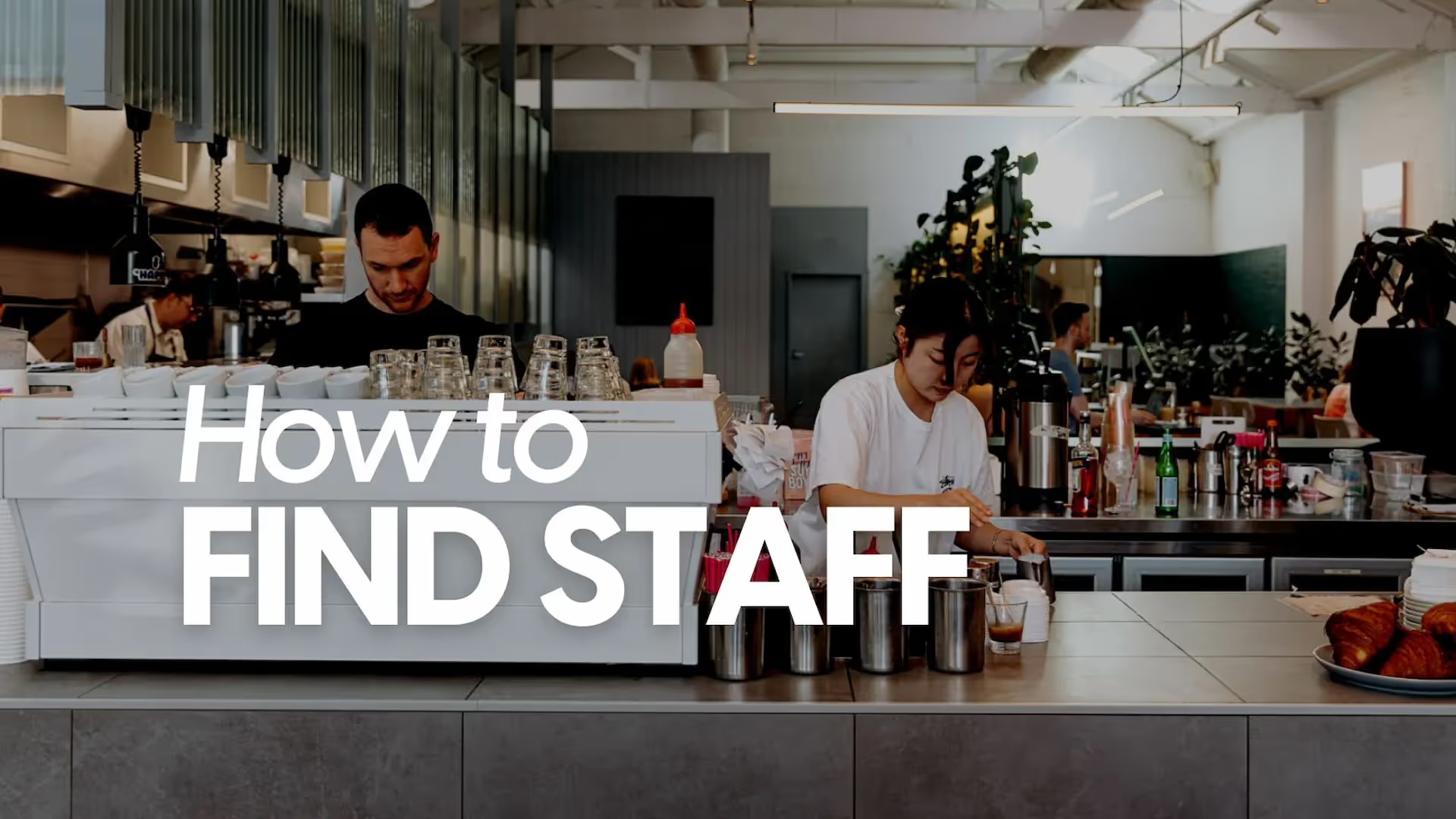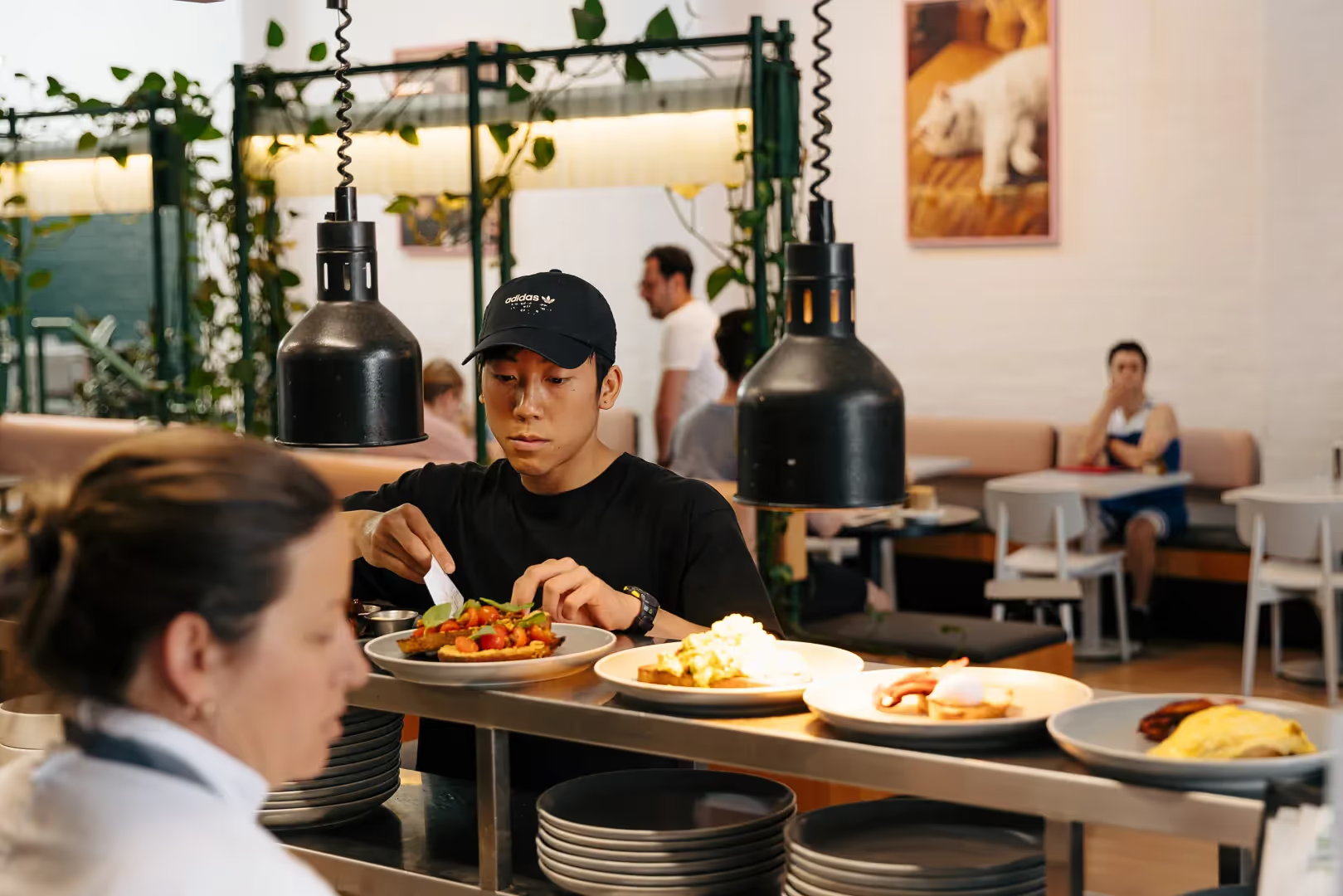How to Find Staff in Hospitality: How to Recruit and Keep Them Engaged
Hospitality faces a staffing crisis. Solutions include social media recruitment, staff referrals, mental health support, work-life balance.

In the ever-changing and demanding world of hospitality, finding and retaining the right staff has become a significant and complex challenge. The industry's dynamic nature, coupled with the global shifts in the workforce, requires a unique, multifaceted approach to recruitment and engagement. In this article, drawing from the rich insights shared by industry leaders at the 2023 Hospitality Leaders Summit, we will explore various innovative strategies to recruit and keep staff engaged. we will delve into the importance of leveraging social media channels like LinkedIn and Instagram and understanding the broader context of the staffing crisis in hospitality.
The Staffing Crisis in Hospitality
The Current State of Staffing in Australia
The hospitality industry has faced a severe staffing crisis, particularly exacerbated by the global pandemic and changing workforce dynamics. The need for skilled, dedicated staff has never been more pressing, and the traditional methods of recruitment are no longer sufficient. The industry is at a crossroads, where innovative thinking and strategic planning are essential.
The lack of staff not only affects the day-to-day operations but also hampers growth, innovation, and the ability to adapt to market trends. It's a persistent problem that requires immediate attention, and the industry must adapt to new methods of recruitment and retention. The stakes are high, and the solutions must be equally robust.
The Cost of Not Finding the Right Staff
The inability to find and retain the right staff can lead to a decline in service quality, customer satisfaction, and ultimately, revenue. It's not just about filling positions; it's about finding the right fit for your brand, culture, and long-term vision. The cost of not finding the right staff extends beyond financial loss; it affects brand reputation and future growth prospects.
The constant struggle to find staff can lead to burnout, frustration, and disillusionment for managers and owners. It's a problem that goes beyond the financial aspect and affects the overall well-being and morale of those involved in the hiring process. The emotional toll can have lasting impacts on the organisational culture and the ability to attract future talent.

How to Recruit and Keep Them Engaged
Utilising Social Media Channels
Forget about Seek, LinkedIn has become an indispensable tool for recruiting, while Instagram can attract people already invested in your brand. These platforms allow for a more targeted and personalised approach, reaching potential candidates who align with your brand's values, culture, and vision. Utilising social media channels effectively requires understanding the audience and crafting messages that resonate with them.
Staff Referrals
As Sarah Dougas of Trader House revealed, staff referrals have been finding the best results. Your existing staff can be powerful advocates for your company, and their referrals often lead to successful hires. Encouraging and incentivising staff referrals can create a more cohesive and engaged workforce, strengthening the organisational culture.
Mental Health Considerations
Being open about mental health is essential in retaining staff. As Nathan Toleman explained, acknowledging and supporting mental health can prevent losing valuable staff members. Creating a supportive environment where mental health is prioritised can lead to higher job satisfaction and retention rates.

A New Approach to Work-Life Balance
Introduction to the Four-Day Work Week
Hector's Deli, a three-store sandwich group in Melbourne, has implemented a four-day work week for full-time employees across its venues and head office. This change is permanent and aims to provide a "recharge day" in the middle of the work week.
The Motivation Behind the Change
The founders, Dom Wilton and CEO Adam Brownell, are addressing the high staff turnover in the hospitality industry. They plan to add paid parental leave, increased training opportunities, and birthdays off to support employees' work-life balance. Other restaurants in Australia and the U.S. have also implemented reduced work weeks, with trials showing better productivity and increased employee well-being.
The Structure and Growth of Hector's Deli
Wilton and Brownell discuss the organic growth of the brand and the recent focus on building an organisational structure. They emphasise the importance of slowing down to build the right foundations for sustainable growth. The conversation explores the high turnover and poor mental health associated with the hospitality industry. The founders express their desire to leave a positive mark by creating safe, sustainable working conditions.
Hector's Deli challenges the idea that chefs need to "pay their dues" by working tirelessly. They emphasise the importance of understanding how to run a sustainable business rather than just perfecting culinary skills. He hopes that other businesses will critically evaluate their practices and consider implementing similar changes. He wants Hector's Deli to be a pioneer in the industry, leading others to follow suit.

Selling Your Venue
In the competitive landscape of the hospitality industry, selling your venue or brand has become an essential part of attracting and retaining top talent. It's no longer just about offering a job; it's about presenting a compelling vision of what it means to be part of your organisation. Here's a closer look at how to effectively sell your venue or brand to potential employees.
Crafting a Compelling Brand
Your brand is how potential and current employees perceive your company. Building a strong employer brand involves showcasing your company's culture, values, and what makes you unique. This can be done through your website, social media channels, and even the way you conduct interviews.
- Website and Online Presence: Your website is often the first point of contact for potential employees. Highlighting your company's mission, values, and culture on your website can create a strong first impression. Including testimonials from current employees or showcasing success stories can add authenticity to your brand.
- Social Media Engagement: Platforms like LinkedIn, Instagram, TikTok and Facebook offer opportunities to engage with potential employees. Regularly sharing behind-the-scenes glimpses, celebrating achievements, and promoting your company's culture can attract like-minded individuals who align with your brand.
- Job Advertisements: Crafting engaging and authentic job advertisements is crucial. Instead of just listing the responsibilities and requirements, focus on what makes your company unique. Highlight the benefits, growth opportunities, and why someone would want to work for you.
Leveraging Employee Advocacy
As mentioned before, Sarah Dougas of Trader House revealed, staff referrals have been highly effective in finding the best results. Encouraging your current employees to refer friends or acquaintances can be a powerful recruitment tool. Offering incentives for successful referrals can further motivate your staff to participate.
- Creating Ambassadors: Your current employees are your best ambassadors. Encourage them to share their positive experiences on social media or within their networks. Provide them with the tools and incentives to promote your brand.
- Building a Referral Program: Implementing a structured referral program can streamline the process. Offering rewards or recognition for successful referrals can foster a culture of advocacy within your organisation.
Showcasing Unique Benefits and Opportunities
Consider offering unique benefits that align with the needs and desires of your target employees. Whether it's flexible work schedules, like Hector’s Deli's four-day work week, or opportunities for professional development, these unique offerings can make your brand more appealing.
- Work-Life Balance: Emphasising a healthy work-life balance, such as offering flexible hours or remote work options, can attract candidates looking for a more balanced lifestyle.
- Professional Growth: Highlighting opportunities for professional growth, such as training programs, mentorship, or clear paths for advancement, can appeal to ambitious candidates seeking career development.
Creating a Supportive Culture
Building a supportive and inclusive culture is key to retention. Encouraging conversations about mental health, offering mental health days, and being a better leader for your team, as emphasised by Australian Venue Co Executive Chef Telina Menzies, can make a significant difference. Investing in leadership development, team-building activities, and open communication channels can foster a supportive culture that retains staff.
Making Hospitality More Appealing
In the face of the current staffing crisis, the hospitality industry needs to rethink its strategies to make the sector more appealing to potential employees. The key lies in changing the perception of the industry and showcasing the opportunities it offers.
One way to do this is by promoting the diverse range of roles available within the industry. From front-of-house roles to culinary positions, event planning, and management, the hospitality industry offers a variety of career paths that can cater to different interests and skill sets. By highlighting these opportunities, the industry can attract individuals who may not have previously considered a career in hospitality.
Moreover, hospitality venues need to showcase the unique experiences and learning opportunities that a career in the industry can provide. As Lee Smith of Stokehouse pointed out, people outside the industry often don't realise the valuable skills they can acquire through hospitality roles. By effectively communicating these benefits, venues can attract individuals who are eager to learn and grow.

Training is Key
Addressing the skills shortage in the hospitality industry requires a strong focus on training. Currently, many individuals entering the industry are not equipped with the necessary skills to excel in their roles. This not only affects the quality of service provided but also contributes to high turnover rates as employees struggle to cope with the demands of the job.
Comprehensive training programs can help bridge this skills gap. These programs should cover both technical skills, such as food preparation and service management, and soft skills like customer service and communication. By equipping employees with a broad range of skills, venues can ensure a high standard of service while also providing employees with the tools they need to succeed in their roles.
Conclusion
Finding and retaining staff in the hospitality industry is a complex and multifaceted challenge that requires a comprehensive and innovative approach. The insights and strategies shared by industry leaders at the 2023 Hospitality Leaders Summit, along with the real-world examples of Hector's Deli's four-day work week and the broader staffing challenges faced by the industry, provide valuable guidance for businesses seeking to navigate this critical aspect of their operations.
Embracing Change and Innovation
The hospitality industry is ever-changing, and so are the strategies to find and keep the best staff. By embracing new ideas, such as unique work schedules and leveraging social media for recruitment, businesses can create a thriving and supportive work environment that not only attracts the best talents but keeps them engaged and committed to the brand. The willingness to innovate and adapt to the changing landscape is key to overcoming the staffing challenges in the industry.
Focusing on Mental Health and Well-being
The importance of mental health and well-being in staff retention cannot be overstated. Creating a supportive work environment that prioritizes mental health, as emphasised by leaders like Telina Menzies and Nathan Toleman, is crucial for retaining staff. Regular check-ins, mental health days, and an open-door policy can foster a culture of support and understanding, making the hospitality industry a more appealing choice for potential employees.
Building Strong Relationships and Community
By fostering strong relationships among staff and creating a sense of belonging, businesses can enhance loyalty and commitment, reducing turnover rates.
The Future of Hospitality Staffing
The future of staffing in the hospitality industry depends on a collective effort to change perceptions, adopt innovative practices, and create supportive work environments. The insights from the 2023 Hospitality Leaders Summit, along with the examples of Hector's Deli and the broader industry challenges, offer a roadmap for success. By understanding the unique challenges and opportunities of the hospitality industry, and by implementing the strategies and insights shared by industry leaders, businesses can build resilient teams that thrive in this dynamic and demanding field.
The staffing challenges in the hospitality industry are not insurmountable. With the right approach, dedication, and willingness to adapt, businesses can find, recruit, and retain the talented staff they need to succeed. The journey towards a more robust and resilient hospitality workforce begins with recognising the challenges, embracing innovation, and building a culture that values and supports its people.